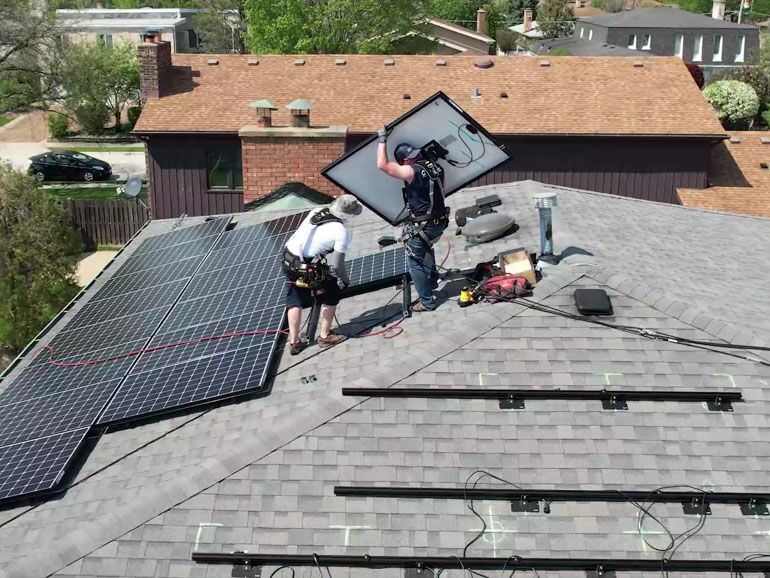The Complete Guide to Solar Energy Setup: Save Money and Go Green
Checking out the subtleties of solar energy installment discloses a diverse method to both expense financial savings and ecological duty. Home owners are significantly taking into consideration solar power not only as a practical option however as a calculated financial investment that can produce considerable long-lasting benefits. Nevertheless, the process involves careful consideration of various variables, consisting of system option and installment treatments. Understanding these elements is crucial for making the most of efficiency and financial savings. What specific actions should one require to guarantee a successful change to solar power, and how can economic motivations better improve this venture?
Benefits of Solar Power
The growing fostering of solar power mirrors a considerable shift towards sustainability and environmental obligation. Among the main advantages of solar power is its capacity to lower dependence on nonrenewable fuel sources, resulting in lowered greenhouse gas discharges. By using the sun's power, people and services can add to a cleaner setting and mitigate the negative results of climate modification.
In addition, solar power can lead to considerable economic savings. When mounted, photovoltaic panels considerably reduced electricity costs, as they generate energy from a sustainable resource. Many governments likewise use motivations, refunds, and tax credit scores to motivate solar fostering, further enhancing economic stability.
One more significant benefit is power freedom. Solar power systems allow property owners and services to produce their own electrical power, minimizing susceptability to rising and fall power rates and supply disturbances. In addition, solar power systems call for minimal upkeep, translating to reduced long-lasting operational expenses.
Selecting the Right Solar System

Solar systems vary considerably in cost depending on their kind, dimension, and performance. Take into consideration potential financing options such as fundings, leases, or power acquisition contracts (PPAs) that might alleviate in advance expenses.
Offered area is one more vital aspect. Examine your roof covering's alignment, angle, and shading, as these aspects can affect photovoltaic panel effectiveness. If roofing area is limited or unsuitable, ground-mounted systems may be a viable alternative.
It's necessary to carry out extensive research to understand the details motivations available in your location, as they can vary widely. Consulting with a solar installation specialist can assist you navigate these alternatives successfully, ensuring you optimize your financial savings while adding to a more lasting energy future.
Maintaining Your Planetary System
Efficient maintenance is critical for making sure the longevity and optimal efficiency of your solar power system. Normal upkeep can aid stop minor problems from escalating right into expensive repairs and make certain maximum power performance.
Start with regular inspections of your photovoltaic panels, ideally every six months. Seek dust, particles, or any type of indicators of deterioration. best solar energy company in fort lauderdale. Cleansing the panels, especially in locations prone to dirt or bird droppings, can significantly boost energy manufacturing. Make use of a soft brush and moderate cleaning agent to avoid damaging the surface.
Following, keep track of the inverter. This find here component transforms solar power into functional power and should be inspected monthly. A lot of modern inverters have keeping an eye on systems that signal you to performance issues, enabling for prompt treatment.
Additionally, inspect the electrical wiring and connections for any indicators of corrosion or damage, as these can result in reduced effectiveness or system failing. Think about expert maintenance services yearly for an extensive examination.
Final Thought
To conclude, the fostering of solar energy offers substantial benefits, including decreased electrical power expenses and a positive environmental influence. Mindful consideration in choosing the suitable solar system, paired with a clear understanding of the installment procedure, improves the overall experience. Financial incentives and normal upkeep additionally add to the long-term benefits of solar power. Eventually, accepting solar technology stands for an essential step toward sustainability and energy self-reliance, promoting a greener future for all.